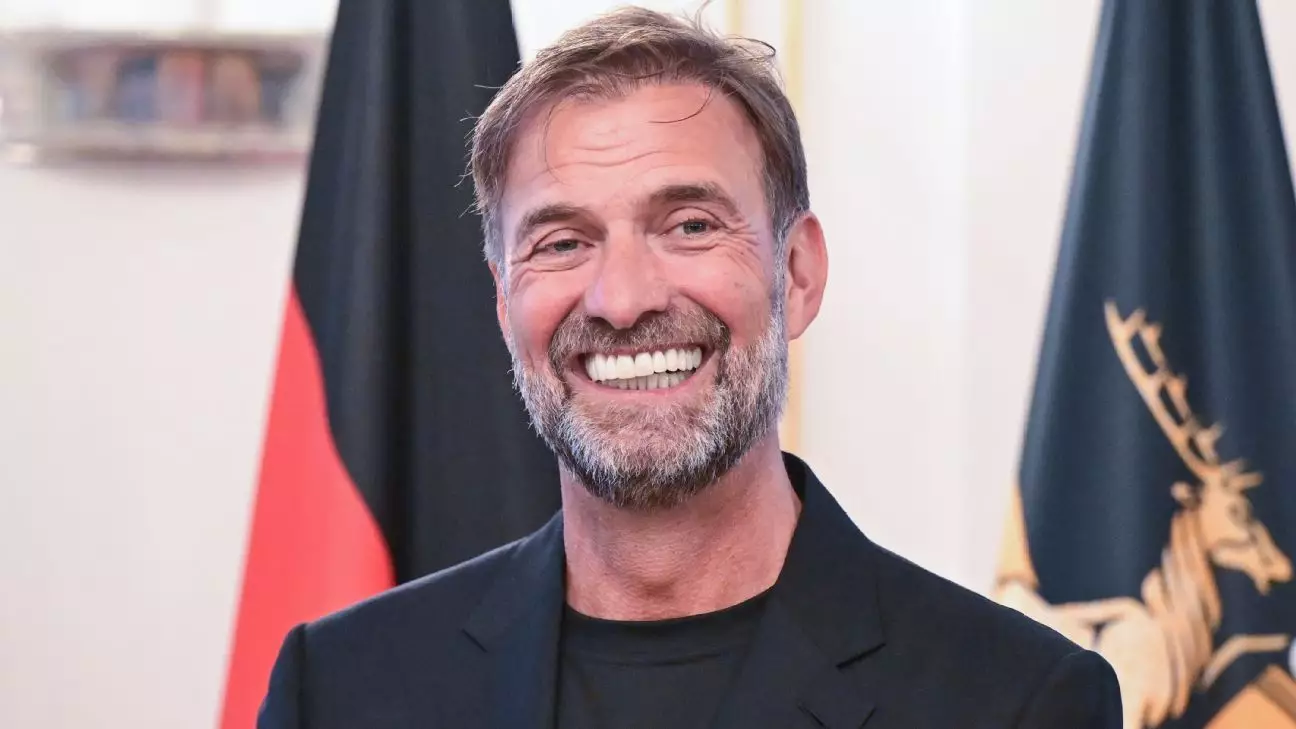Jürgen Klopp, a name synonymous with vibrant football management, has taken a significant step in his career by joining the Red Bull group as the head of global soccer. This transition from the touchline to the boardroom is not merely a career shift; it underscores the evolving nature of management in football, coupled with Klopp’s formidable reputation. The announcement, made recently, pivots Klopp into a new role where his immense experience and distinctive vision will be leveraged to guide several football clubs under the Red Bull umbrella, including RB Leipzig, RB Salzburg, and New York Red Bulls, among others.
In his previous role as Liverpool’s head coach, Klopp was the public face of a robust and dynamic team, bringing home the UEFA Champions League and Premier League titles. His leadership style is defined by intense passion and close relationships with players and fans alike. However, as he steps into the director’s chair, it raises questions about whether he can maintain that connection without the immediacy of matchdays. The role of head of global soccer demands a strategic mindset, where his responsibilities will encompass mentoring coaches and contributing to worldwide talent scouting. How well he adapts to these high-level decisions without the thrill of being on the sidelines remains to be seen.
Despite his move into the administrative aspects of football, there are nuances that hint at a potential return to coaching. Reports have emerged that Klopp has negotiated a release clause in his contract, allowing him to accept a managerial position with the German national team should an opportunity arise. This creates a tantalizing possibility: could we see Klopp leading Germany at the 2026 World Cup? While the future is uncertain, this strategic clause indicates that Klopp may see this position at Red Bull as a stepping stone rather than a final destination.
Klopp’s tenure at Liverpool was famously intense, marked by not only incredible success but also considerable strain. In his farewell interviews, he emphasized the toll that the pressure of managing at such a high level had taken on him personally. “I realized I can’t do it anymore,” he admitted, citing mental and physical fatigue. After nearly a decade at one of the world’s most scrutinized football clubs, he expressed a desire to step back and devote quality time to his family, seeking a respite from the rigors of management.
Initially, Klopp took a 12-month sabbatical during which he waded through speculation linking him to various managerial roles, including the England and United States national teams. Nonetheless, he repeatedly declined these offers, signaling a genuine intent to enjoy his time away from the spotlight. However, history suggests that Klopp’s passion for football may not allow him to remain distant for long, especially given his propensity for considering opportunities that align with his ambition.
One of the intriguing aspects of Klopp’s new role at Red Bull lies in the underlying dynamics of power within the sporting hierarchy. Traditionally, a manager like Klopp thrives on the immediacy of the game – devising strategies in real-time, motivating players, and reacting to the ebb and flow of matches. In stark contrast, his new position necessitates a long-term strategic approach, dealing with organizational tactics that extend well beyond game days.
Herein lies the tension. Klopp’s success as a coach is deeply intertwined with his unparalleled energy and connection with players. Transitioning to a role that often revolves around administrative decisions and the oversight of coaches at various clubs introduces a different kind of pressure. While he may initially relish the opportunity to influence football from a higher level, one must reflect on whether this shift can provide fulfillment for a manager whose essence is tied to the trenches of competitive sports.
Klopp’s appointment at Red Bull may result in a temporary departure from day-to-day club management, but does it signal a permanent shift? Should the German Football Association come calling for a national team manager, particularly as the nation prepares for the World Cup on home soil, the allure may prove too tempting to resist. Current coach Julian Nagelsmann holds the reins, but with the unpredictability associated with football, managerial vacancies at prominent clubs could arise at any moment. This makes Klopp’s return to the touchline, possibly as coach of the national team, not just a dream but a conceivable reality.
Ultimately, while Jürgen Klopp’s evolution from manager to director at Red Bull represents an intriguing chapter in his illustrious career, the undeniable question lingers: Will the “normalcy” of life away from the touchline satisfy a man whose life is a whirlwind of adrenaline and passion for the game? The future, perhaps, holds a blend of both worlds.

Leave a Reply